This website uses cookies so that we can provide you with the best user experience possible. Cookie information is stored in your browser and performs functions such as recognising you when you return to our website and helping our team to understand which sections of the website you find most interesting and useful.
Duca di Salaparuta: three unique estates expressing Sicilian terroir
Hailing from Sicily, Duca di Salaparuta winery has sought lands that express the essence of the island for almost 200 years. Today, the brand expresses its agricultural heart through three property estates, and a vineyard heritage stretching over 183 hectares.
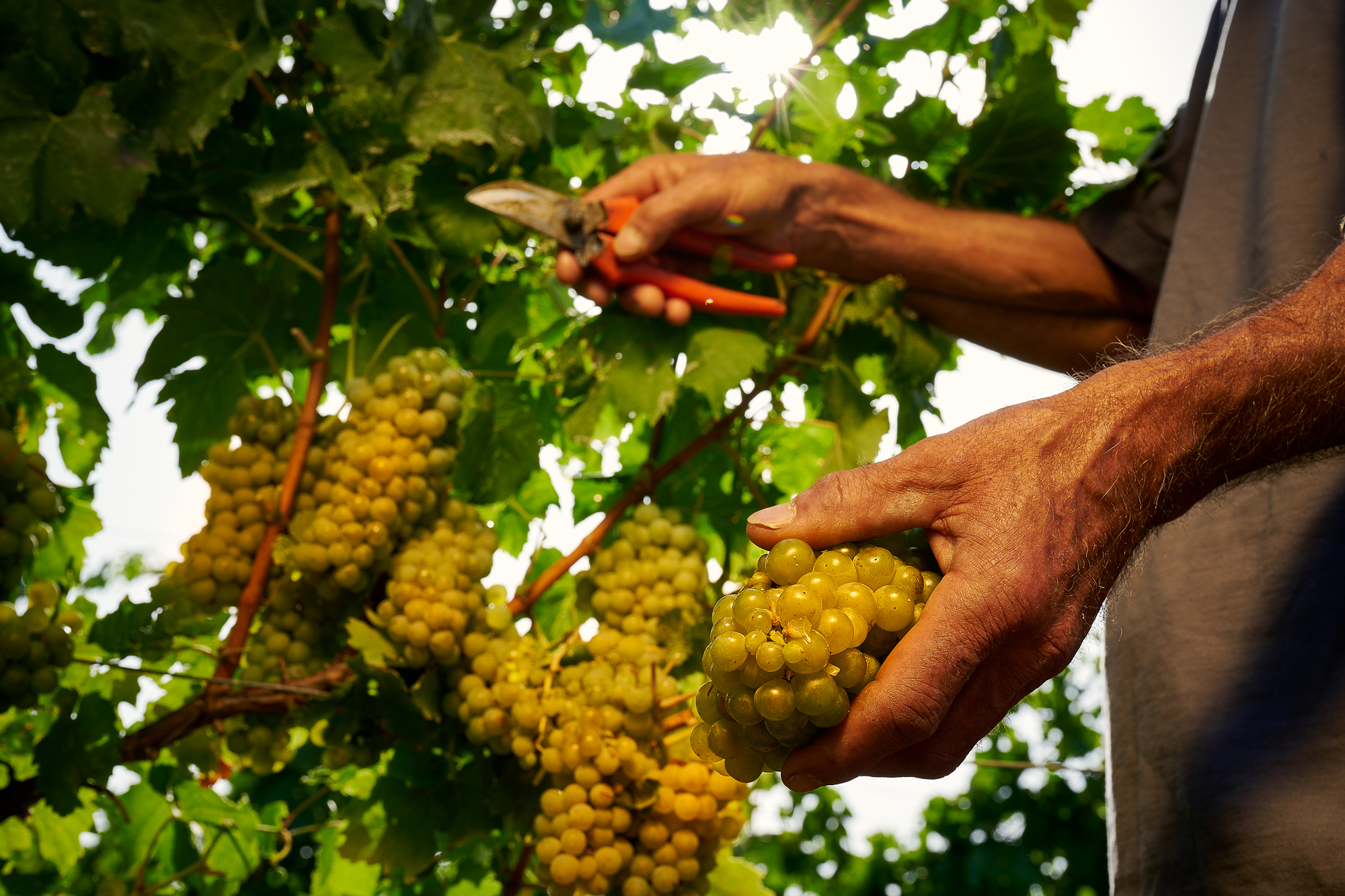
Duca di Salaparuta chose the island of Sicily’s best winegrowing territories to establish its own estates: Suor Marchesa in Riesi, Risignolo in Salemi and Vajasindi on the slopes of Etna.
Located on three different corners of the island, the estates express their identity in a different way, each revealing particular characteristics of the terroir.
“The areas where the Estates are located were chosen after a careful zoning analysis which aimed to identify the most suitable locations for the production of very typical wines that could enhance varieties that are native to Sicily,” explains Francesco Pizzo, agronomist at Duca di Salaparuta.
The first of the three, Risignolo, is located in the province of Trapani. Here, atop a hill overlooking the coast, Duca di Salaparuta owns 35 hectares of vineyards dedicated to two white grape varieties: Grillo and Insolia.
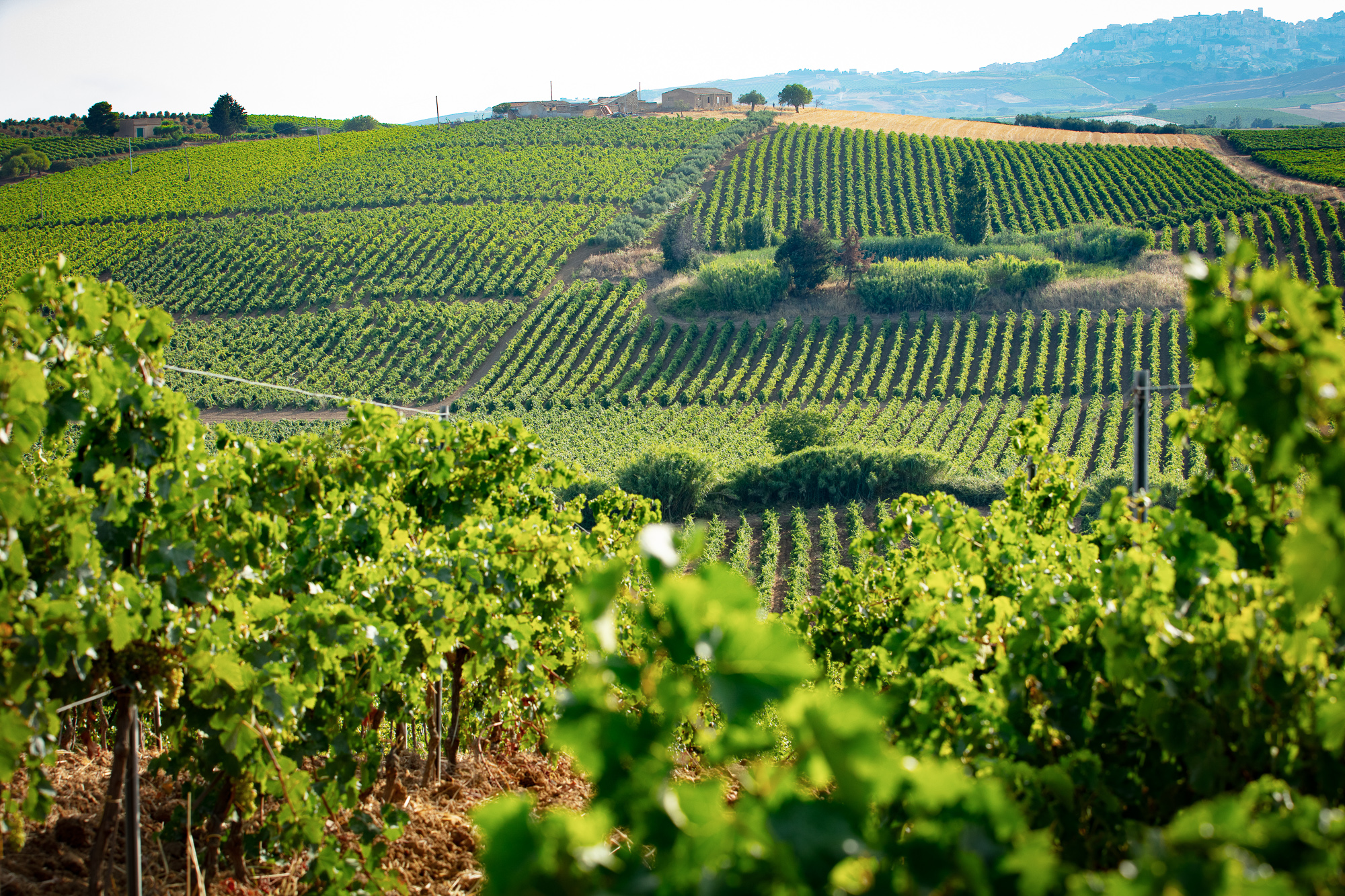
The maritime influence and the loose, sandy-clay soils give the white wines of this area a fresh and mineral aromatic bouquet, according to their makers.
Suor Marchesa, Duca di Salaparuta’s second estate, is found in the southern part of Sicily, in the municipality of Butera. Located close to the sea, it enjoys sunny summers and mild, short winters.
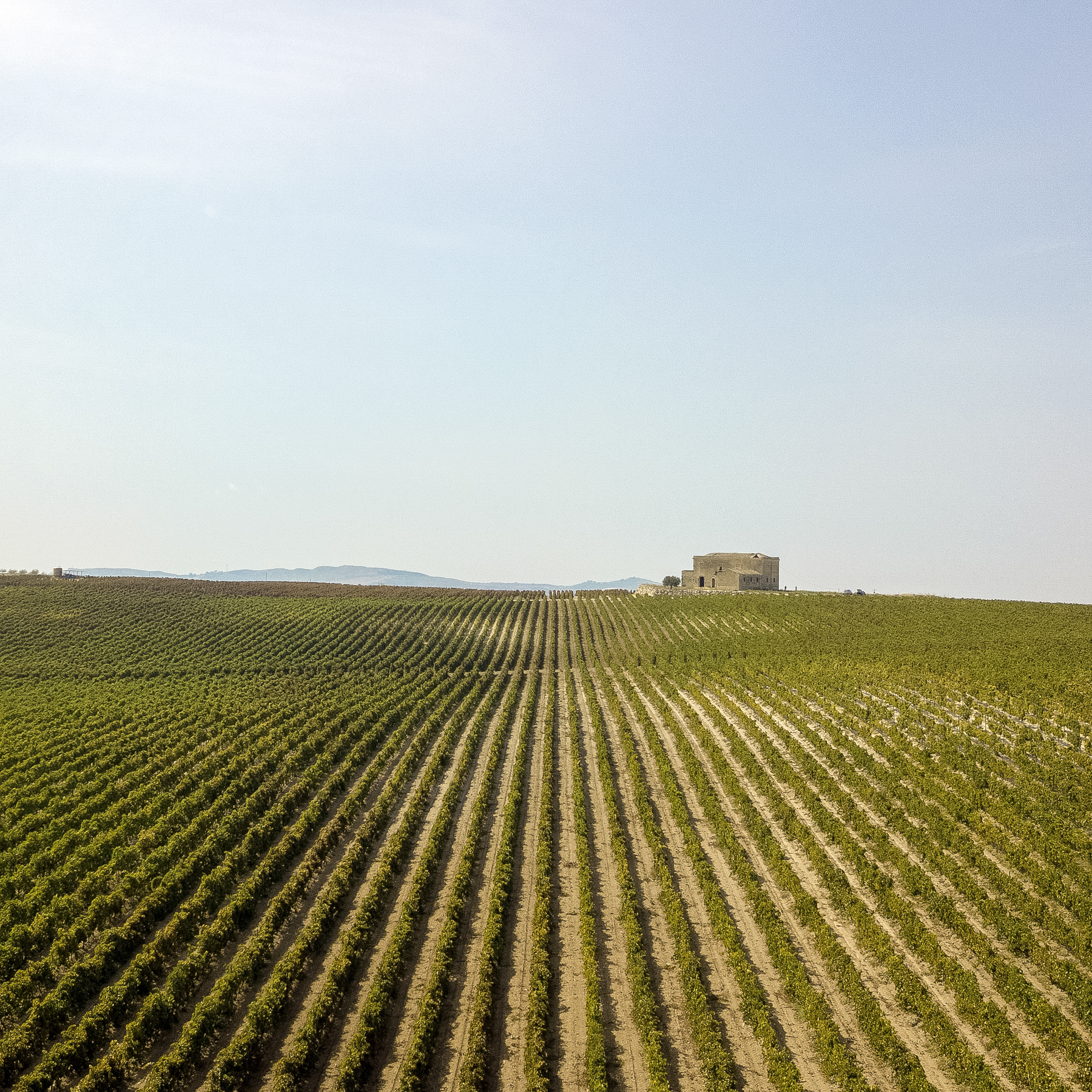
The 127 hectares of vineyards are characterised by limestone-siliceous soils and exposure to winds, with a full shade of green. The limestone present in the soil gives aromatic intensity and longevity to the Nero d’Avola grapes grown in this area.
Vajasindi stands on the slopes of Mount Etna. Its area of 21 hectares, located in Passopisciaro in the municipality of Castiglione della Sicilia, is divided into three terraces. The first rests at 700 meters above sea level, while the other two are found at 620 meters.
Alongside the traditional Nerello Mascalese, Duca di Salaparuta has also planted Pinot Noir, becoming the first to take up the challenge launched by enologist Giacomo Tachis.
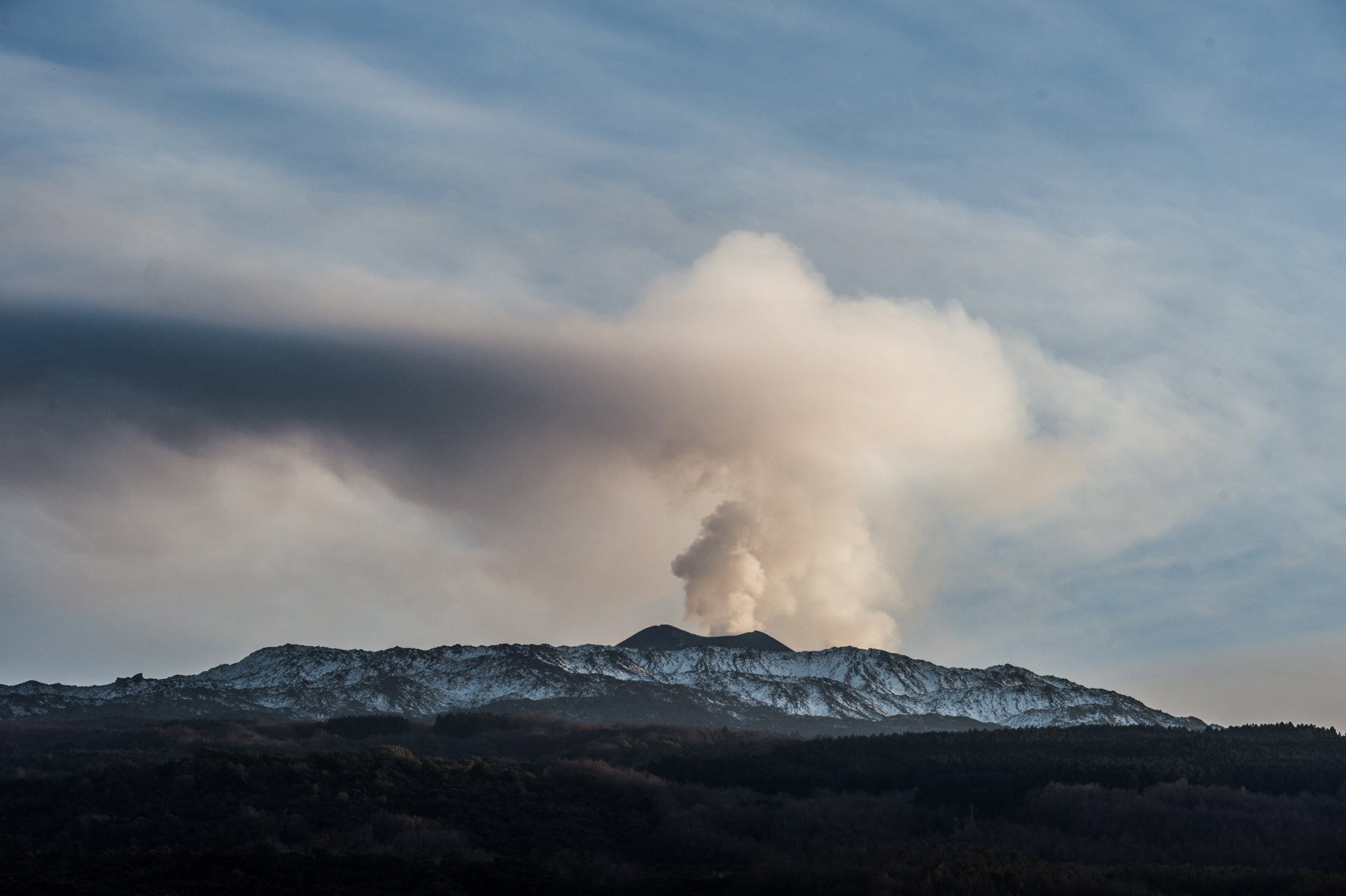
“These are highly distinct and suitable areas that enabled us to implement a sustainable agronomic management that respects the land,” says Pizzo.
“This has been possible thanks to our serious commitment to minimize the usage of chemicals, such as pesticides and herbicides, which has been carried out through rigorous monitoring of the vineyards in the different Estates, both on site and in the laboratory.”
Duca di Salaparuta also carries out green pruning, using manual operations to regulate the development of the vine canopy, balancing leaf size and production.
The practice, which involves several stages based on the seasonal trend, creates the optimum environment for the correct ripening of the bunches by regulating their number, arrangement and exposure.
“Taking proper care of the vineyard is an essential part for the production of high-quality wines that, year after year, can give voice to the different souls of our island,” Pizzo adds.
Duca di Salaparuta is part of the first group of wineries in Sicily to obtain both VIVA and Equalitas certifications.
Now owned by Illva Saronno, the Duca di Salaparuta S.p.A group has decided show and trace all of its operations aimed at ensuring environmental, social and economic sustainability through its certifications.
Duca di Salaparuta S.p.A recieved its VIVA Certification in March 2021 – an initiative of the Italian Ministry of Ecological Transition aimed at assessing sustainability indicators of the wine sector, starting from the measurement of water and carbon footprints. And last May, the group became the first private company in Sicily to receive the Equalitas Certificate.
An important step in advocating for transparency, these certifications enable the company to be transparent with consumers and show its commitment to continuously improve standards for production.
The group draws up its own sustainability report every year, detailing activities carried out, goals that have been achieved, and improvements planned for the future.
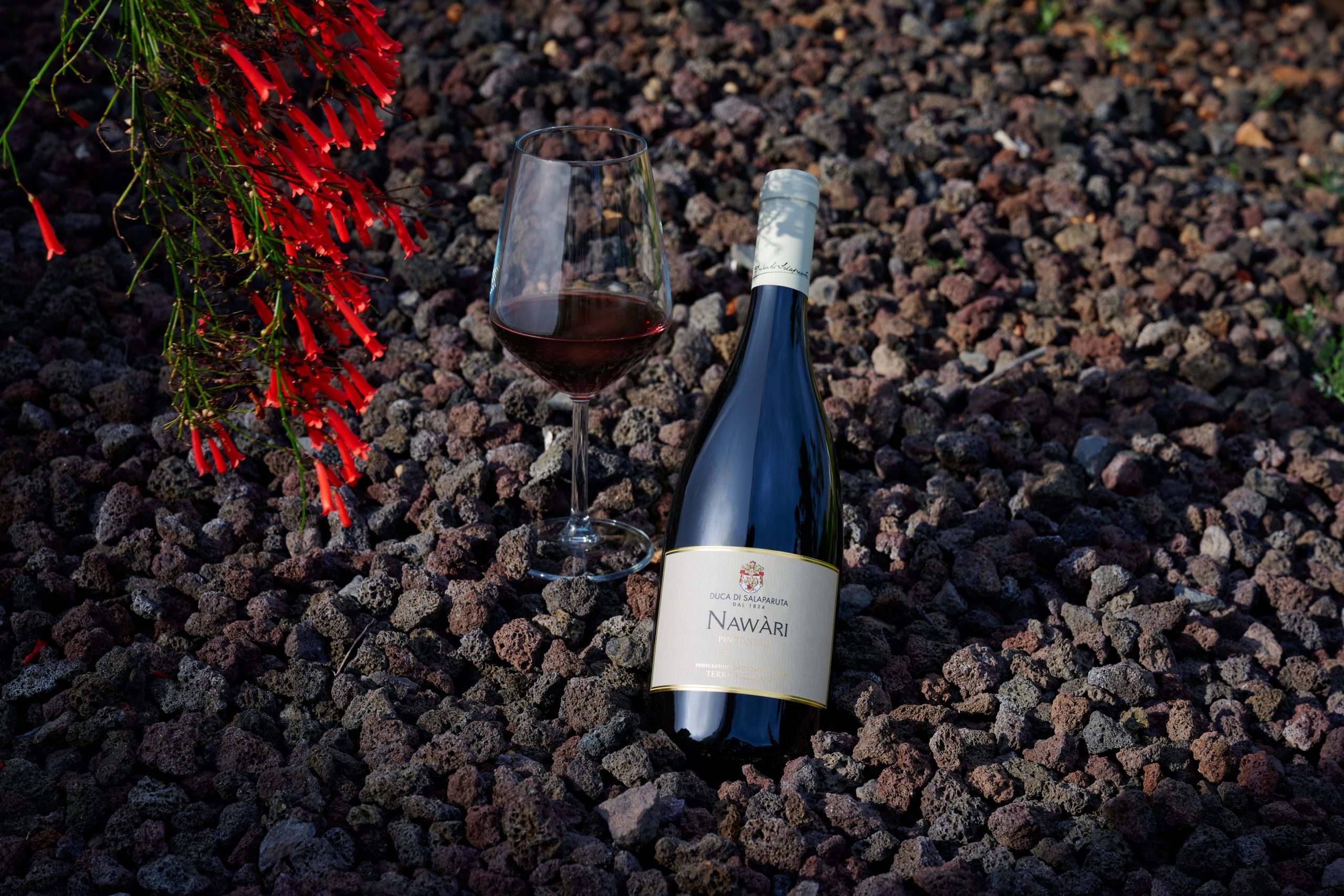
Duca di Salaparuta expresses its unique terroir through the wines produced on each estate.
Created in 1984, Duca Enrico is the first single-varietal Nero d’Avola in the history of Sicilian wine. Bianca di Valguarnera, another of the brand’s icons, reached 30 years of age in 2017.
In 2020 Nawàri joined the ranks of Duca di Salaparuta icons, alongside Duca Enrico and Bianca di Valguarnera. These wines stemmed from the company’s desire to celebrate two indigenous varieties – Nero d’Avola and Insolia – are now joined by the first Pinot Nero grown on the slopes of Etna.
To read tasting notes of the winery’s three icon wines, click here.


